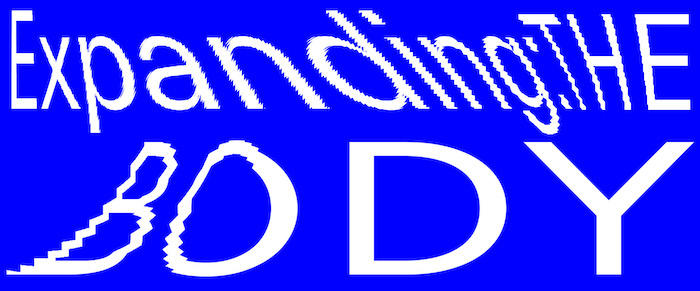Software Project: Coding IxD — Designing Neo-Analogue Artifacts
(19319312)
| Type | Software Project |
|---|---|
| Instructor | Prof. Dr. Claudia Müller-Birn, Peter Sörries |
| Number of Places | 16 |
| Room | Cluster of Excellence “Matters of Activity” - Sophienstrasse 22a, 2.HH, 2nd floor, 10178 Berlin |
| Start | Oct 18, 2023 | 10:00 AM |
| end | Feb 14, 2024 | 12:00 PM |
| Time | Wednesday 10 am - 12 pm |
Links
Student Profile
BSc. and MSc.
Course Description
In Coding IxD, we co-educate computer scientists and product designers. Beyond experiencing interdisciplinary work, we want students to envision interactive and responsible systems: by this, we mean a responsibility through code that is carefully using material, form, and context, while profoundly respecting both human capabilities and vulnerabilities. We understand this course as experimental space, where different perspectives meet, exchange, and evolve. Each semester, based on small project teams of up to four members, students are challenged to examine a specific application context. Within this context, the teams envision new application or product concepts.
We guide this process through various carefully tuned methods that are used to spark their ideas. Students iterate through several rounds of ideation and refine their concepts in different prototype versions. The most compelling or promising interaction concept, the one that allows grasping the quality and essence of the product concept is implemented in a working prototype. Students are accompanied by a team of experienced designers and computer scientists but also by guest experts that provide feedback to the various design iterations. If needed, special workshops are organized to cover specific topics ranging from prototyping to project management. The whole course is evaluated continuously to enhance our methodological toolbox.
This course offering is a cooperation of the Human-Centered Computing Research Group at the Institute of Computer Science at the Freie Universität Berlin and the Product Design Department at the Weißensee Kunsthochschule Berlin (KHB).
Besides the regular weekly meetings, the KHB and FU Berlin provide complimentary workshops.
Here you can find our Code of Conduct.
Topic of this semester: Expanding - THE BODY

As we enter a world where technology is not just around us but also inseparable from us, even inside us, it is time to rethink how we design the human body. The rise of wearables, body tattoos, and e-textiles demonstrates the increasing ubiquity of technology in capturing vital body data. However, these innovations tend to reflect universal solutions that often overlook the individuality inherent in each human body's response to different life situations and environments (Streeck, 2011).
The field of health technologies has been characterized as male-biased, often excluding marginalized groups such as non-binary people, people with disabilities, and pregnant women. This points to the urgent need for a paradigm shift in which technologies are designed to celebrate and support the uniqueness of each human body, bridging the digital-physical divide with tangible and embodied artifacts.
Enter our groundbreaking interdisciplinary course project, "Expanding:THE BODY", where we foster the conventional approach and emphasize the design for the uniqueness of the human body. Our core objective is to engineer embodied interactions that actively articulate, reflect individual needs, and materialize them (Spiel, 2021). Our mission is to honor the plurality of human bodies and develop a deeper understanding of embodiment as a perception and interaction mode and a design principle (Spiel, 2021).
In this course, we face several challenges:
1. We delve into the experiential differences in the lived embodiments of individuals and groups and explore how these unique experiences shape lives differently.
2. We raise questions about the data and information that human bodies can provide and how individuals can cultivate skills to become more attentive to their body data.
3. We explore how complex and multifaceted body data can be translated into innovative physical artifacts.
We invite students from Computer Science at Freie Universität Berlin and Product Design from Kunsthochschule Weißensee Berlin to collaborate. The challenge is to design and develop novel neo-analog artifacts that use the body as a starting point. These artifacts aim to enhance cognition, communication, learning, and decision-making in everyday contexts (Jansen et al., 2015).
Join us in "Expanding:THE BODY" as we embark on a journey to reshape the future of body-centered technologies. Be a part of this innovative endeavor and help us create a more inclusive, perceptive, and empathetic technological landscape.
You can find more information on the Official Coding IxD Website.
The course takes place in cooperation with the Weißensee Academy of Art Berlin. We meet every Wednesday in the laboratory of the Cluster of Excellence "Matters of Activity" at the Humboldt-Universität zu Berlin.
www.matters-of-activity.de/en/
Literature
Zimmerman, John, Jodi Forlizzi, and Shelley Evenson. "Research through design as a method for interaction design research in HCI." Proceedings of the SIGCHI conference on Human factors in computing systems. 2007.
Pierce, James, et al. "Expanding and refining design and criticality in HCI." Proceedings of the 33rd Annual ACM Conference on Human Factors in Computing Systems. 2015.
Jansen, Yvonne, et al. “Opportunities and Challenges for Data Physicalization.” Proceedings of the 33rd Annual ACM Conference on Human Factors in Computing Systems, ACM, 2015, pp. 3227–36. https://doi.org/10.1145/2702123.2702180.
Jansen, Yvonne, Pierre Dragicevic, Petra Isenberg, Jason Alexander, Abhijit Karnik, Johan Kildal, Sriram Subramanian, and Kasper Hornbæk. 2015. Opportunities and Challenges for Data Physicalization. In *Proceedings of the 33rd Annual ACM Conference on Human Factors in Computing Systems* (CHI '15). Association for Computing Machinery, New York, NY, USA, 3227–3236. <https://doi.org/10.1145/2702123.2702180>.
Spiel, Katta. "The Bodies of TEI – Investigating Norms and Assumptions in the Design of Embodied Interaction." In *Proceedings of the Fifteenth International Conference on Tangible, Embedded, and Embodied Interaction* (TEI '21). ACM, 2021, Article 32, 1–19. <https://doi.org/10.1145/3430524.3440651>.
Streeck, Jürgen, Charles Goodwin, and Curtis LeBaron. "Embodied interaction in the material world: An introduction." *Embodied interaction: Language and body in the material world* 1 (2011): 26.
